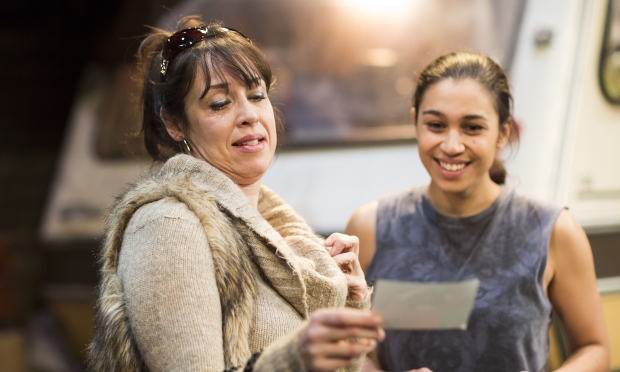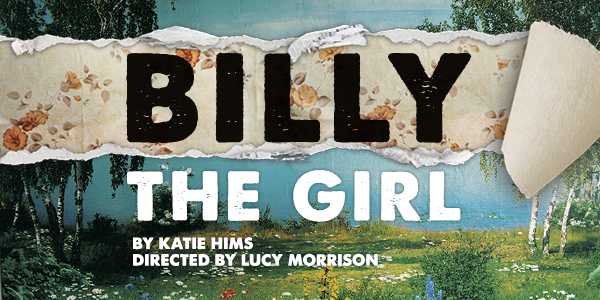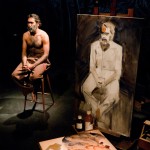Caravans and Heroines: Billy the Girl at the Soho Theatre
Katie Hims’ Billy the Girl presents superbly drawn characters, faced with the paradox of living ordinary lives through times of big change. Direction, design and sensitive portrayals of difficult characters, combine in a moving story of about starting again. At the Soho Theatre.
Katie Hims’ Billy the Girl, produced by the visionary theatre company Clean Break, sets up a parallel between the treatment of women in our prisons and in the wider community. In Billy the Girl that wider dialogue presents the challenging topic of how a released prisoner begins to imagine a new life for herself. This idea of starting over again (and again) is something which, Hims’ play makes clear, affects us all.
Theatre with a social message is often delivered in a presentational style. That is, in a style strongly influenced by Brecht, both through his plays and through his theory of alienation. It is now commonplace to see ‘theatre for change’ adopting overtly theatrical means to jolt the audience into awareness through songs, signs and other non-naturalistic staging conventions. I argue, for instance, in my review of Crowning Glory, that Somalia Seaton makes use of such staging devices throughout her play using film projections and the dramatic monologue.
However, on watching Billy the Girl it is possible to see that while not blatantly political, its more realistic style of drama effectively personalises the role of the disenfranchised in our society. In a nutshell, in letting audiences empathise with clearly difficult and unattractive characters, like the life-worn mother Ingrid and the prison-hardened young woman Billy, the playwright gives us the power to affect a change in ourselves, through identifying with similar circumstances in their lives.
We meet three richly detailed characters: a mother, daughter and sister, all facing the paradox of living ordinary lives and facing a time of crucial change. Their shared breadth of experience is affecting. Amber appears the most troubled person of the three as her mother and sister project their belief that she is the most ‘normal’. I found it deeply moving that she tries to solve her dilemmas by striving to become invisible – we first see her at the beginning of the play hiding in the caravan – and that, ironically, this invisibility leads her into crime; she is an adept shoplifter.
Lucy Morrison’s direction of three fine actors, Danusia Samal, Christine Entwisle and Naomi Ackie, explores the humanity of three women as they interact with the justice system. At first this is most obviously through Billy but, as the narrative unfolds, we see that all three live in a network of struggling men and women who rub up against the legal system everyday.
Perhaps the most interesting aspect of the play is how it materialises the individual’s handling of boundaries and off-limit zones – an important theme in a piece about the value of freedom. For instance, looking around the stage I note the interesting way it explores the relationships between mother, daughters and sisters through the physical boundaries such as the back door of the house that is off-limits to Billy and the gate which connects the family to the wider world. Poignantly, Ingrid’s mobile phone only connects her to her overweight, depressed and dysfunctional sister, Madge.
The caravan performs the role of treasure-chest, gut and womb. It also functions in theatrical terms as a dressing room and back stage area. But whatever metaphor it conjures up, its centre stage positioning is highly effective in investing the dialogue with meaning beyond what is happening on stage. Set designer Joanna Scotcher, together with lighting and sound designers Katharine Williams and Becky Smith, deserves an award for such an economical and imaginative use of space.
By the end, an epic journey has linked the photo of a little boy called Billy, found in a chocolate tin in the caravan, to the final moments of the play, in which a girl, also called Billy, brings out the gift of chocolate to share with her mother. The characters have an integrity and vulnerability which speaks beyond their own story, revealing how we all tentatively build our hopes of starting again.
Date reviewed: Friday 1st November 2013







